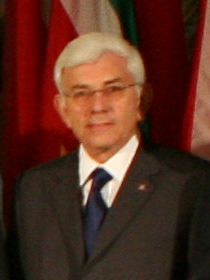A Quote by Gina Miller
I come from South America and it's part of our culture to speak out. It's a lot healthier.
Related Quotes
I feel like I'm a New Yorker to the bone. But there is a lot of the South in me. I know there is a lot of the South in my mannerisms. There's a lot of the South in my expectations of other people and how people treat each other. There's a lot of the South in the way I speak, but it could never be home.
I was raised in a country [South Africa] with a lot of political turmoil. I was part of a culture and a generation that suppressed people and lived under apartheid regimes. I don't know how you can come out of that and not have an awareness for the world. I think that if my life had turned out any other way and I was working in a bank, I would still feel this way about it, because there's a connection to humanity that to me is really important.
You've got the whole civil rights movements emanating from the south, you've got the music that came out of the south that is the core of our current music, so for me that thinking comes out of having Dukes of Hazzard thrown in your face: that the south is a bunch of twangy people that I can't understand. So this is, hopefully, part of the movement to restore the south to its proper and rightful place in our nation... which is huge and pervasive. It's not about Texas - I'm not saying Texas doesn't have it's own unique history - but the south has this at its core.
Many teachers of the Sixties generation said "We will steal your children", and they did. A significant part of America has converted to the ideas of the 1960s - hedonism, self-indulgence and consumerism. For half of all Americans today, the Woodstock culture of the Sixties is the culture they grew up with - their traditional culture. For them, Judeo-Christian culture is outside the mainstream now. The counter-culture has become the dominant culture, and the former culture a dissident culture - something that is far out, and 'extreme'.
Now I've come to such a mixed culture: America, Europe, South America, Africa. And the politics are changing everywhere all the time and becoming even more unpredictable. There's no such thing as "fixed" culture. China is also becoming more global. Its problems are becoming international problems, becoming German problems, becoming American problems. Nothing is clear-cut. Perhaps I'll find my way - or get totally lost.
I speak a lot about what I call "the trance of unworthiness" which is really epidemic in our culture, this sense of "I'm not enough," or "something's wrong with me." Most of us have some level of it because our culture has all these standards (handed down through our families) of what it means to be okay.






































